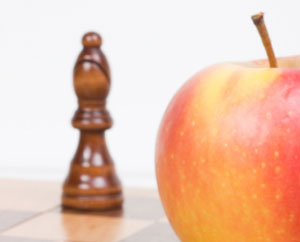Gluten Free
What does following a gluten-free diet mean? That you're embarking on an easy diet with a wide range of health-promoting effects. Instead of dwelling on what you’re giving up, consider that you’re going to enjoy a whole new world of delicious food options to meet your special dietary needs. You’ll be eating seasonally, choosing more fresh fruits and vegetables, focusing on meats, seafood, poultry, legumes, lentils, corn, and rice, and discovering fascinating ancient grains such as quinoa, amaranth, and millet. You’ll be able to eat potatoes, eggs, most cheeses, even chocolate (!)—and enjoy them without guilt because you’ll be taking good care of your body. In fact, you’ll probably end up eating—and feeling—better than ever!
Visit this page for more information about living Gluten Free
---
We carry a large variety of gluten free items, the brands listed below represent just some of the offerings we carry















More Diets
- By Suzanne Dixon, MPH, MS, RD
Keep Your Brain Sharp with Healthy Foods
What our bodies can do at age 50 may not be the same as what they could do at 20. The brain is no exception, but we still have some good news: research suggests that just as regular exercise maintains fitness with age, eating the right foods may protect the aging brain.
Research suggests that just as regular exercise maintains fitness with age, eating the right foods may protect the aging brain
Eat well, think better
To study nutrition and brain health, researchers performed a long-term study over a 13-year period. They first collected diet and thinking (cognitive) function information from 2,135 adults who were 45 to 60 years old. The cognitive function tests included assessment of:
- Verbal skill, as measured by the ability to name as many animals and cite as many words as possible beginning with the letter P, within a two minute period of time
- Mental flexibility, measured by the ability to connect patterns of numbers and letters
- Memory, as measured by number memorization tasks and list-learning
- The assessment of eating habits considered how closely the study subjects followed healthy eating guidelines, which included:
- Having five or more servings of vegetables and fruit daily
- Choosing whole grain foods instead of refined (white flour) grains
- Eating moderate serving sizes to maintain a healthy body weight
- Consuming alcohol in moderation or not at all
- Eating three servings of dairy per day
- Eating no more than one to two servings of meat, poultry, and eggs per day
- Eating at least two servings of seafood per week
- Drinking at least four cups of water per day
- Limiting soda, sweets, salt, and added fats
Thirteen years later, the study subjects completed another cognitive function test. The researchers discovered that the more closely a person followed the healthy eating guidelines, the more likely he or she was to maintain good verbal memory and skill. The healthy eaters also maintained better executive function, which is the ability to organize thoughts and activities, prioritize tasks, manage time, and make decisions.
Memory-making meals
While this study does not prove cause and effect, it suggests that choosing the right foods may nurture our noggins as we age. Put brain-healthy eating front and center in your life with the following tips.
- Vary vegetables and fruit. Aim for five or more servings of a variety of vegetables and fruit each day to ensure you get plenty of brain-healthy nutrients, and to keep your taste buds from getting bored.
- Harness whole grains. Read labels and avoid products with enriched flour – a tip-off the product is not whole grain.
- Fix fish. Enjoy at least two servings of fish or seafood each week to ensure a steady intake of brain-healthy omega-3 fats.
- Nix sugary drinks. Replace soda and sugary fruit drinks with tea, sparkling water, or just a simple glass of water.
(Am J Clin Nutr 2010; published online ahead of print)










